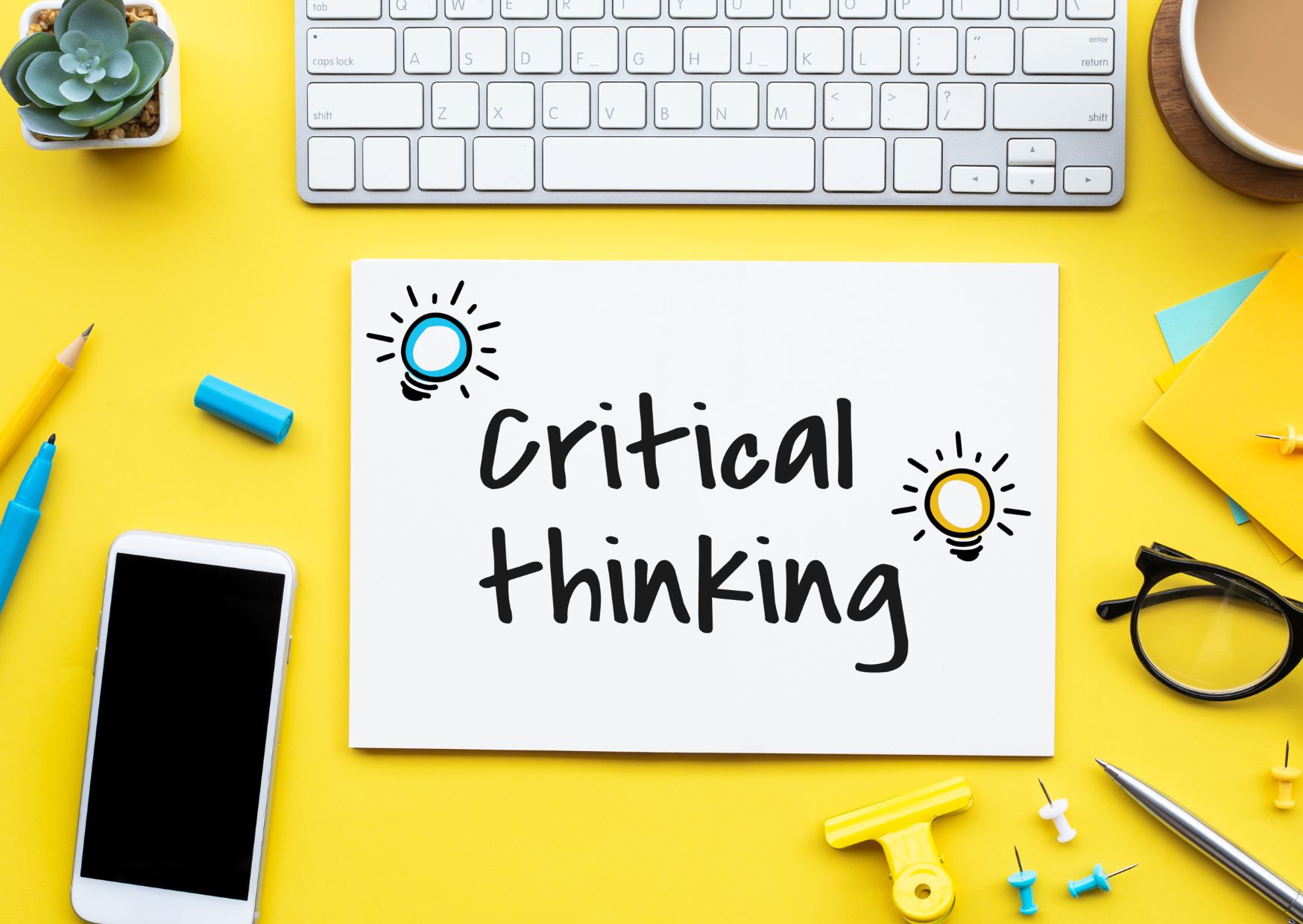The Power of Critical Thinking for Employee Wellbeing and Life Transformation
Critical thinking is a skill that is often overlooked but packs a powerful punch when it comes to transforming lives, both at work and outside it.
Let’s unravel its essence, understand why it’s essential for employee wellbeing, and discover how it can lead to profound transformations in our professional and personal lives.
Contents
Why is Critical Thinking Important for Employee Wellbeing?
How Does Critical Thinking Enhance Problem-Solving at Work?
6 Key Elements of Critical Thinking
5 Ways to Develop a Critical Thinking Culture in the Workplace
Why is Critical Thinking Essential for Leadership Roles?
What Role Does Critical Thinking Play in Employee Engagement and Satisfaction?
How Does Employee Critical Thinking Improve Business Success?
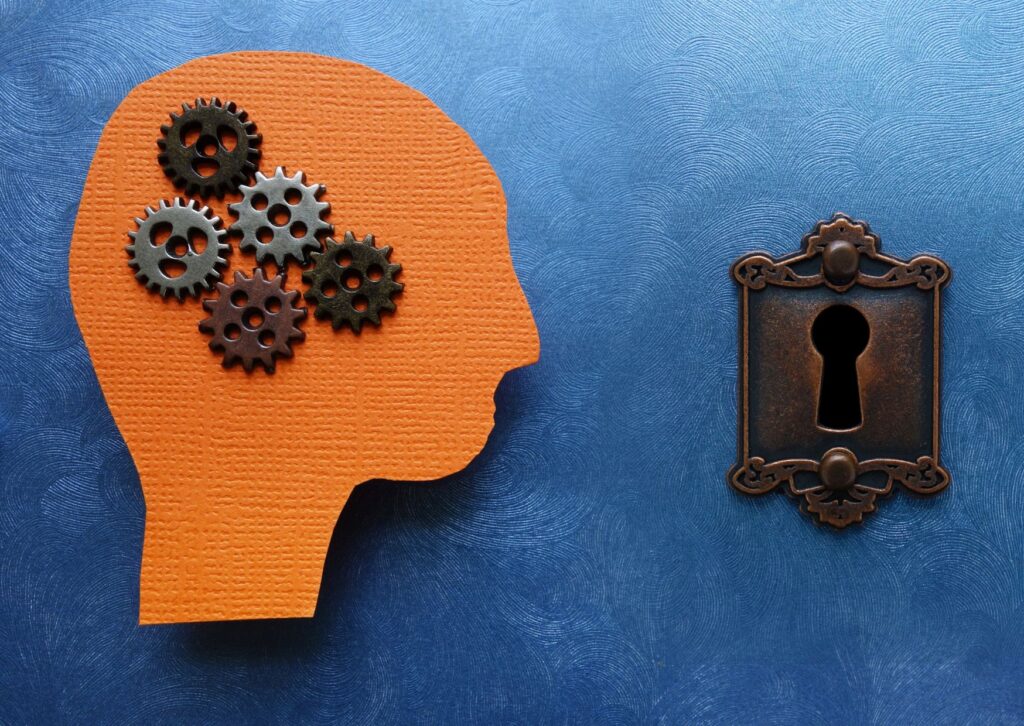
What is Critical Thinking?
Critical thinking is akin to the compass in our mind that navigates us through complex situations and decisions.
It’s not just about gathering information, but about meticulously analysing it, asking thoughtful questions, and making informed decisions based on that analysis.
In essence, critical thinking is the ability to think clearly and rationally, to understand the logical connections between ideas, and to construct focused, balanced arguments.
It’s about being actively engaged in our thoughts and challenging what we see or hear, rather than passively accepting it.
It’s a skill that helps us dig beneath the surface and discern truth from falsehood.
In a nutshell, if our mind is a ship, critical thinking is the skilled captain that steers it towards the right destination.

Why is Critical Thinking Important for Employee Wellbeing?
Just like a balanced diet is vital for physical health, critical thinking is the nourishment for a healthy, stress-free mind at work.
But how exactly does it contribute to employee wellbeing?
Engaging in evaluative and reflective thinking significantly contributes to alleviating workplace stress.
It equips employees with the capability to analyse situations objectively, identify potential solutions, and make informed decisions, thereby reducing the anxiety of uncertainty and indecisiveness.
By fostering mental resilience, critical thinking helps employees adapt to changes and challenges in the work environment.
It encourages a growth mindset, empowering individuals to learn from their experiences and continuously improve.
Moreover, critical thinking enables employees to engage in meaningful conversations, negotiate conflicts, and collaborate effectively, all of which are fundamental for creating a harmonious and supportive workplace.
To put it simply, critical thinking is the mental wellness tool that keeps the mind agile and the spirit uplifted, making it an essential element for overall employee wellbeing.
At Loving Life, we deliver a range of Employee Wellbeing Workshops that not only help support employee wellbeing, but ask intriguing questions that encourage employees to think critically.
How Does Critical Thinking Enhance Problem-Solving at Work?
Imagine facing a complex problem at work.
Without critical thinking, you might feel like you’re lost in a maze.
But with the ability to think critically, you’re equipped with a flashlight and a map to find your way out.
Critical thinking enhances problem-solving by enabling individuals to clearly define problems, analyse relevant information, and devise effective solutions.
It encourages employees to consider various perspectives, challenge assumptions, and evaluate potential outcomes, thus fostering innovation and creativity.
When employees think critically, they are less likely to jump to hasty conclusions or rely on unverified information.
Instead, they systematically break down problems, consider all possible options, and choose the most effective solution based on logic and evidence.
In essence, the practice of thoughtful analysis and logical reasoning revolutionizes problem-solving in the workplace, turning it from an overwhelming obstacle into a systematic process.
This skill becomes indispensable in today’s ever-changing and fast-paced work environments.
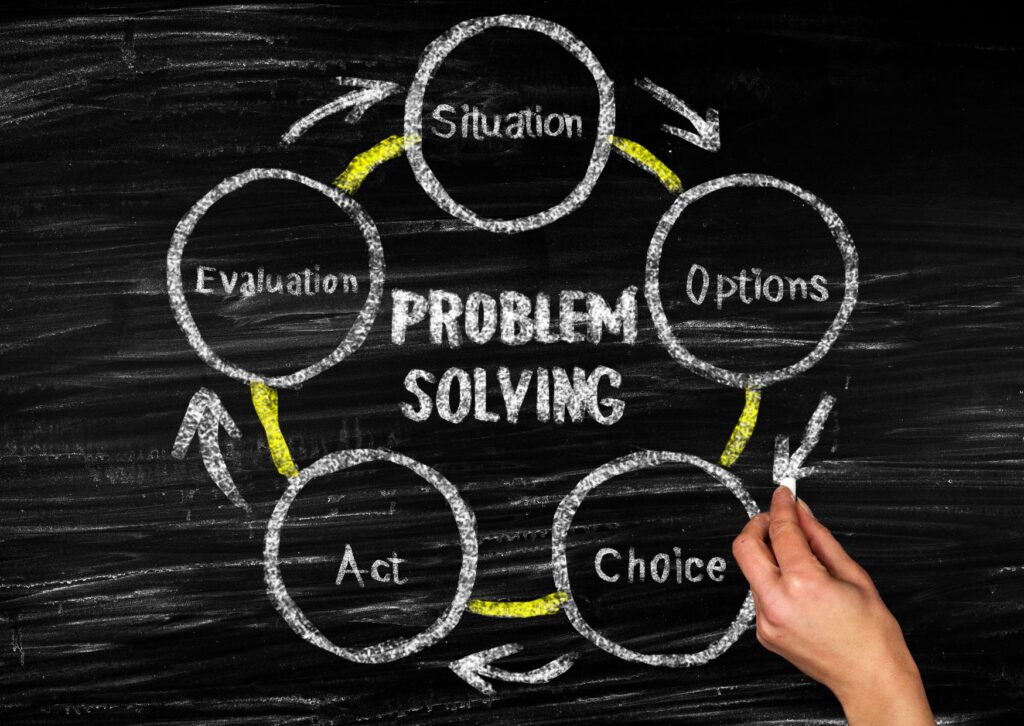
6 Key Elements of Critical Thinking
Critical thinking might seem like an abstract concept, but it can be broken down into several key elements, each serving as a pillar that supports this vital skill.
Here are the major components:
1. Analysis
The ability to dissect complex issues and understand their components.
It involves examining ideas, identifying arguments, and understanding how these arguments are structured.
2. Evaluation
This involves assessing information and arguments critically. It includes discerning the credibility of sources, identifying bias, and determining the validity of arguments.
3. Inference
The capacity to draw logical conclusions from the information available.
It involves making connections between statements, ideas, or facts to derive a reasoned conclusion.
4. Interpretation
The ability to understand and explain the meaning of information, and translate this understanding into useful insights.
5. Explanation
Being able to clearly and effectively communicate your reasoning and findings to others.
6. Self-Regulation
The awareness to recognise your own thought process, question your assumptions, and correct your thinking if necessary.
This requires humility and open-mindedness.
Together, these elements help build a robust framework, turning it from an abstract concept into a tangible tool for problem-solving and decision-making.

5 Ways to Develop a Critical Thinking Culture in the Workplace
Creating a culture of critical thinking in the workplace can lead to innovative ideas, improved problem-solving, and a more engaged workforce.
Here are some steps you can take to foster such a culture:
1. Promote Open Communication
Encourage employees to express their thoughts, ask questions, and share their ideas.
A culture where everyone’s perspective is valued creates a fertile ground for critical thinking.
2. Encourage Questioning
Promote a workplace environment where questioning is welcomed, and assumptions are regularly challenged.
This can spark deeper thinking and innovative solutions.
3. Provide Training
Offering workshops and training sessions can be a powerful way to develop critical thinking skills.
These could cover various aspects of thinking critically and offer practical exercises for employees to apply these skills.
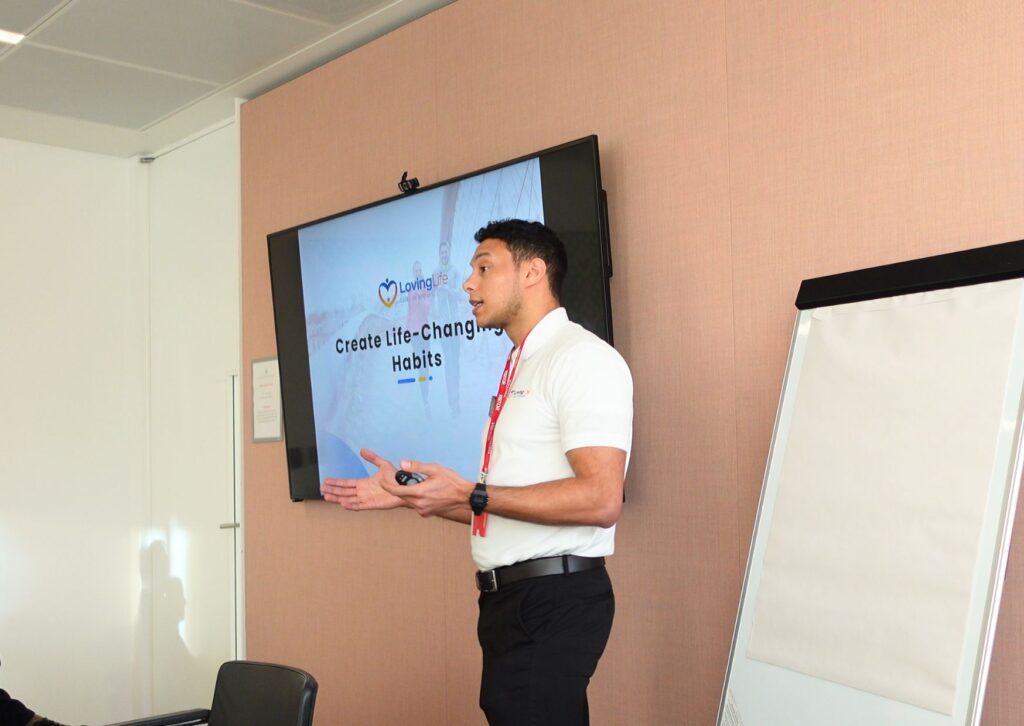
4. Recognise Critical Thinking
Acknowledge and reward employees when they exhibit strong critical thinking skills.
This can motivate others to develop these abilities.
5. Lead by Example
Leaders who show the ability to think carefully and make informed decisions will inspire their teams to do the same.
By regularly demonstrating how you use thoughtful analysis and logical reasoning in your decision-making process, you can encourage others to adopt these critical thinking skills.

Remember, developing a culture of thinking critically doesn’t happen overnight.
It takes commitment and consistent effort.
But the rewards – a more engaged, innovative, and effective workforce – are well worth it.
Why is Critical Thinking Essential for Leadership Roles?
If leadership is the engine that drives a team or organisation, the ability to think critically is the oil that keeps that engine running smoothly.
Critical thinking equips leaders with the ability to make informed and rational decisions.
It encourages them to evaluate multiple perspectives, predict potential outcomes, and make choices that align with the organisation’s goals.
Leaders with strong critical thinking skills are able to cut through the noise, identify the root causes of problems, and devise effective solutions.
They aren’t swayed by emotions or biases, but instead rely on facts and logic to guide their actions.
Moreover, thinking critically promotes transparency and fosters trust.
Leaders who value critical thinking encourage open communication, welcome diverse viewpoints, and aren’t afraid to challenge the status quo.
This can lead to increased employee engagement, innovation, and a positive company culture.
In a nutshell, critical thinking is more than just a ‘nice-to-have’ for leaders, it’s a ‘must-have’ skill that plays a pivotal role in driving organisational success.

What Role Does Critical Thinking Play in Employee Engagement and Satisfaction?
Thinking critically can be a game-changer when it comes to employee engagement and satisfaction. Here’s why:
Empowerment
When employees use critical thinking, they take charge of their tasks and projects.
They become self-reliant problem solvers, which boosts their confidence and job satisfaction.
Better Communication
Critical thinkers express their ideas clearly and listen to others with an open mind, fostering better team collaboration and mutual respect.
Growth and Development
Critical thinking stimulates curiosity and a love for learning.
Employees who constantly learn and grow are more likely to stay engaged and committed to their jobs.
Innovation
By challenging assumptions and thinking ‘outside the box’, critical thinkers often come up with innovative solutions.
This creativity can make work more exciting and fulfilling.
Resilience
Critical thinkers are better equipped to deal with change and adversity, which can reduce stress and improve job satisfaction.
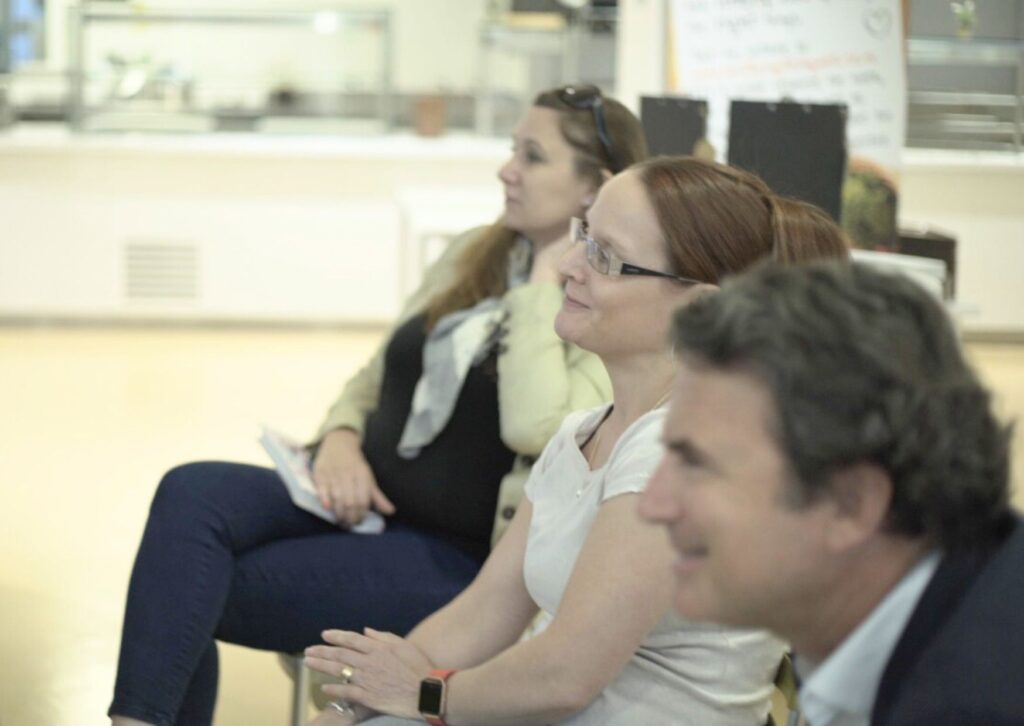
In essence, the ability to analyse and evaluate can transform a dull job into a captivating and rewarding career, playing a crucial role in fostering employee engagement and contentment.
How Does Employee Critical Thinking Improve Business Success?
Think of critical thinking as a secret ingredient that can enhance the recipe for business success. Here’s how:
Improved Decision Making
Critical thinkers analyse information from various sources and perspectives before making a decision.
This leads to more informed and effective decisions that can steer a business towards its goals.
Enhanced Problem Solving
Employees with think critically can better identify and understand problems, and develop innovative solutions.
This can increase efficiency and productivity.
Increased Adaptability
Businesses operate in dynamic environments.
Critical thinking helps employees adapt to changes, learn from experiences, and continuously improve.
Fostered Innovation
Promoting a mindset of curiosity and embracing alternative perspectives fosters a culture of exploration and imaginative problem-solving, paving the way for fresh ideas and groundbreaking advancements.
In today’s fiercely competitive business environment, staying at the forefront necessitates a commitment to innovation.
Strengthened Teamwork
Critical thinking promotes open communication and respect for diverse viewpoints, which can improve collaboration and teamwork.
In essence, employees who think critically are catalysts that can accelerate business success.
It’s a powerful tool that, when utilised effectively, can drive a business to new heights of achievement.

To conclude, thinking critically, is a transformative skill that can power employee wellbeing, enhance leadership, and drive business success.
The ability to think critically isn’t just beneficial, it’s essential in our fast-paced, information-saturated world.
Whether you’re an employee looking to boost your performance, a leader aspiring to guide more effectively, or a business striving to thrive, cultivating ways to challenge your thinking is a step in the right direction.
Remember, the journey towards becoming a skilled critical thinker is continuous, but each step you take strengthens your ability to navigate challenges, make informed decisions, and ultimately, live a more fulfilling life.
Author
Tyler Lowe – Health & Wellbeing Speaker
BSc Sport & Exercise Rehabilitation


